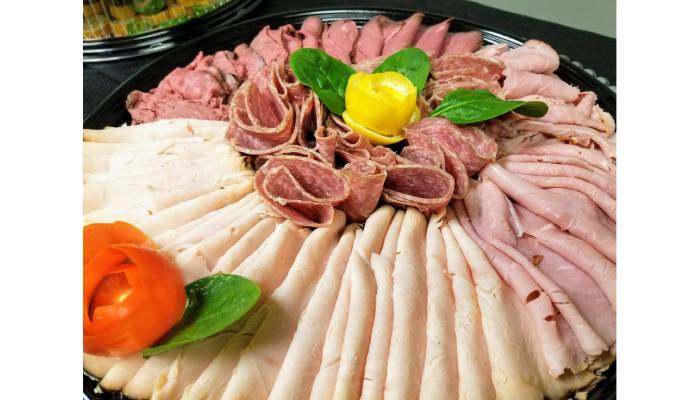How To Accommodate Special Diets In Corporate Catering?
Corporate catering plays a crucial role in business events, meetings, and conferences, providing meals that fuel productivity and enhance the overall experience. However, one of the biggest challenges faced by caterers and event organizers is accommodating special dietary requirements. Ensuring that every attendee has access to meals that align with their dietary restrictions is essential for inclusivity, comfort, and professionalism. In this guide, we’ll explore how to effectively accommodate special diets in corporate catering while maintaining quality and variety.
Understanding Common Special Diets in Corporate Catering
Before planning a corporate catering menu, it’s important to understand the various dietary restrictions and preferences that corporate guests may have. Some of the most common include:
- Vegetarian: Excludes meat, poultry, and fish but may include dairy and eggs.
- Vegan: Excludes all animal products, including dairy, eggs, and honey.
- Gluten-Free: Avoids foods containing wheat, barley, rye, and their derivatives.
- Dairy-Free: Eliminates all dairy products, including milk, cheese, and butter.
- Nut-Free: Required for individuals with nut allergies, which can be severe or life-threatening.
- Halal: Food must comply with Islamic dietary laws, including specific slaughtering methods.
- Kosher: Adheres to Jewish dietary laws regarding food sourcing and preparation.
- Low-Carb/Keto: Focuses on minimizing carbohydrate intake and increasing healthy fats.
- Diabetic-Friendly: Includes balanced meals with controlled sugar levels to manage blood glucose.

Steps to Successfully Accommodate Special Diets
Gather Dietary Information in Advance
To ensure a seamless corporate catering experience, organizers should collect dietary preferences and restrictions from attendees before the event. This can be done through RSVP forms, surveys, or direct communication with guests. Providing an option to specify allergies or special diets allows for better planning and reduces the risk of dietary mishaps.
Partner with a Flexible Catering Service
Choosing a corporate catering company that is experienced in handling diverse dietary needs is essential. When selecting a caterer, inquire about their ability to create customized menus, prevent cross-contamination, and offer allergen-friendly options. A caterer with experience in dietary accommodations will be better equipped to provide safe, high-quality meals that meet everyone’s needs.
Offer a Variety of Meal Options
A well-balanced catering menu should include diverse meal choices to ensure that all dietary preferences are covered. Instead of creating separate dishes for each dietary restriction, aim for menu items that naturally cater to multiple groups. For example:
- A quinoa and roasted vegetable salad is suitable for vegans, vegetarians, gluten-free, and dairy-free guests.
- Grilled chicken with a side of steamed vegetables works for gluten-free, low-carb, and keto diets.
- Dairy-free soups, such as lentil or tomato-based soups, are great for those avoiding dairy and are often vegan-friendly.
Clearly Label All Food Items
Food labeling is crucial for guests with dietary restrictions. Clearly marking dishes with symbols or descriptions indicating whether they are gluten-free, vegan, nut-free, etc., helps guests quickly identify safe choices. If possible, include ingredient lists or allergen warnings to enhance transparency and minimize risks.
Prevent Cross-Contamination
Cross-contamination is a major concern, especially for individuals with severe allergies. To ensure safety:
- Use separate utensils, cutting boards, and cookware for allergen-free dishes.
- Store allergen-free foods separately from common allergens such as nuts, dairy, and gluten-containing items.
- Train catering staff on proper handling techniques to prevent accidental exposure to allergens.
Provide Customizable Meal Stations
Buffet-style catering with build-your-own meal stations can be an excellent way to accommodate various dietary needs. Options such as salad bars, taco stations, or pasta stations with different protein and topping choices allow attendees to customize their meals according to their dietary preferences.
Communicate with Attendees
During corporate events, having a point of contact for dietary concerns can be helpful. Assigning a catering liaison or providing a catering contact number ensures that guests can ask questions about ingredients or request special modifications if needed.
Don’t Forget About Beverages
While much focus is placed on food, beverages also play a role in dietary accommodations. Offer dairy-free milk alternatives (such as almond, soy, or oat milk) for coffee and tea stations. Provide sugar-free drink options for diabetic attendees, and consider alcohol-free choices for those who prefer them.
Consider Cultural and Religious Sensitivities
Understanding cultural and religious dietary restrictions is essential when catering to a diverse group. Providing halal and kosher options ensures that all attendees feel respected and included. Work with certified suppliers if required to guarantee authenticity.
Collect Feedback for Future Events
After the event, gather feedback on the catering experience. Ask attendees whether their dietary needs were met, how they felt about the meal options, and what improvements could be made. This helps refine future catering plans and ensures continuous improvement in accommodating special diets.
The Benefits of Accommodating Special Diets in Corporate Catering
Increased Employee and Guest Satisfaction
Providing inclusive meal options demonstrates thoughtfulness and consideration, making employees and guests feel valued. A well-fed attendee is more likely to stay engaged and productive throughout the event.
Improved Reputation for Your Business
Companies that take dietary needs seriously gain a positive reputation for being inclusive and accommodating. This can enhance business relationships and strengthen corporate culture.
Reduced Risk of Health Issues
By properly addressing dietary restrictions, businesses can prevent allergic reactions, food sensitivities, and other health-related incidents, ensuring a safe and enjoyable experience for all attendees.
Higher Event Participation
When attendees are confident that their dietary needs will be met, they are more likely to participate in corporate events, leading to better engagement and networking opportunities.
Conclusion
Accommodating special diets in corporate catering is an essential aspect of hosting successful business events. By understanding common dietary restrictions, planning ahead, and partnering with experienced caterers, businesses can create inclusive meal options that cater to all attendees. From clear labeling and customizable meal stations to preventing cross-contamination and gathering feedback, implementing these strategies will ensure a seamless and enjoyable dining experience for everyone involved. Investing in thoughtful corporate catering not only enhances guest satisfaction but also reflects positively on the company’s commitment to inclusivity and professionalism.




